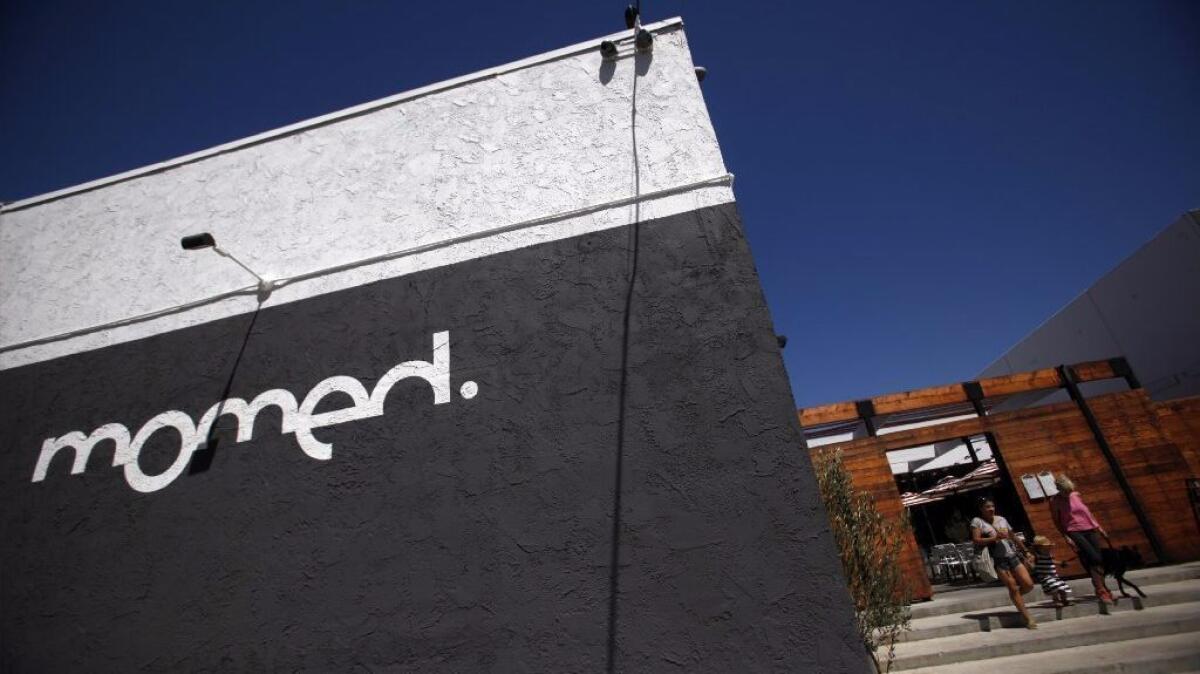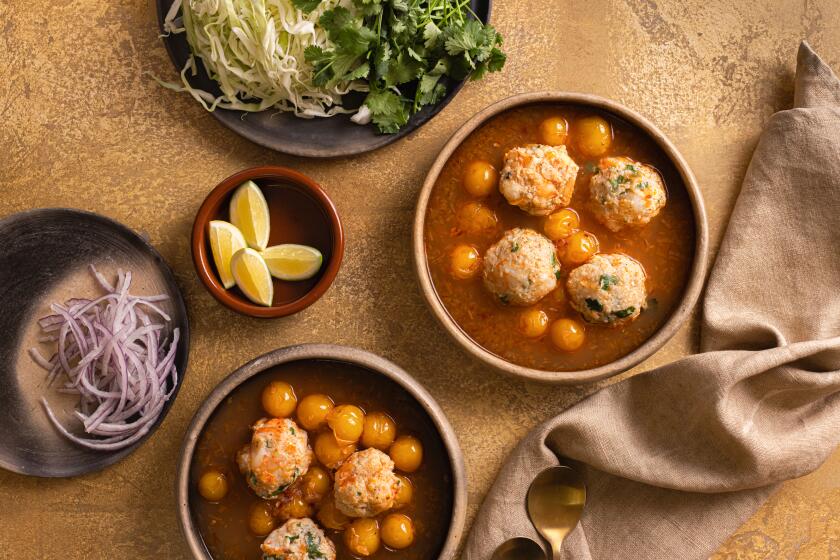Q&A: This Atwater Village restaurant hopes to highlight the refugee crisis with a new immigrant dinners series

This May, Momed Atwater Village is holding weekly “immigrant dinners” every Wednesday, featuring nine dishes from a variety of countries including Syria, Lebanon, Afghanistan, Iran, Turkey and Egypt. The series is meant to promote the understanding and acceptance of different cultures and shine a light on the refugee and immigrant crisis affecting much of the world today.
Fifty percent of all proceeds will be donated to the International Rescue Committee, an organization that works to help refugees from all over the world. The dinners are also part of our monthlong Food Bowl festival. I recently spoke with Alex Sarkissian, owner of Momed (the restaurant has locations in both Beverly Hills and Atwater Village) about the dinner series at the Atwater Village location and his work to bring visibility to the immigrant and refugee crisis. The interview has been edited and condensed for clarity.
Tell me about the dishes. Where are they from, and how did you choose them?
I wanted to focus on the immigrants that are in Los Angeles, while keeping with the modern Mediterranean food identity of the restaurant. Los Angeles is such a diverse city. Also, this is an issue that hits close to home. I’m from Iran, and so I felt I had to do it.
All of the dishes are small dishes, and I wanted to focus on countries that are in the news. I did a dish from Iran that is very simple. Eggplant is served with this yogurt sauce that is made from dried, or evaporated, yogurt. You use that as the basis of a sauce and it really opens it up. The dish is common in a lot of Persian restaurants.
I picked a dish from Afghanistan because of the country’s refugee issue. The dish is almost like a chickpea stew. And from Syria, we did a dish that is like a soup of lemon juice with a beef and lamb patty with mint. From Israel, we chose to do a drink. It’s based on a salad — the Israelis call it an Israeli salad, the Turkish call it a shepherd’s salad, the Persians have it, and so on — it’s basically cucumber, tomato and onion with parsley, lemon juice and olive oil. We purée that and use it as a martini base. And the dessert, from Egypt, is a kind of Mediterranean pound cake with rosewater and syrup.
Los Angeles Times Food Bowl: A new kind of food festival »
What do you hope to communicate with the series?
I don’t want to get political, but obviously immigrants and refugees are very current topics of conversation. I want to reaffirm and show respect to them, and that their communities — me being one of them — are what make Los Angeles great. Being in the hospitality industry, particularly the restaurant industry, it’s particularly poignant, because without immigrants, the industry would not exist. I’m not talking about the kind of food we serve, but the people who work in it. This business relies on the immigrant community.
When you share a meal with someone and you enjoy great food, it's hard to think about your differences. It's much easier to find your commonality."
— Alex Sarkissian, owner, Momed
It’s amazing how food has the capacity to unite and bring us together.
It is. And that was one of the premises when I first created Momed eight or nine years ago. We have Israeli dishes on the menu, and we have Palestinian dishes on the menu. There are so many great dishes from that part of the world, and that is our approach. When you enjoy the food, it’s very difficult to hate. Food brings everybody together.
You’re a passionate advocate for immigrant rights. I’ve read that, in 2016 alone, the number of refugees and displaced persons around the world exceeded 65 million. What are some of the challenges immigrants face?
We did this in support of the IRC (International Rescue Committee). My aunt came to America through IRC. I have a personal connection to them.
With the refugees coming from Syria, Libya and places where there is conflict, I cannot even put myself in their position. They put themselves on these little rubber dinghies and float out into the open ocean hoping to get to another side. I can’t even comprehend what must go through someone’s head to do this.
You cannot fault someone for wanting a better life for themselves and their family. If there’s something we can do to try to help them settle somewhere, or give them an opportunity to start their lives again, this is our chance.
After Food Bowl, do you plan on continuing these dinners?
I don’t know if it will be monthly, but based on the response we’ve had, it’s definitely touched a nerve out there. The response was more than I’ve ever experienced. I’d like to bring in a guest chef and do a dinner focused on that chef’s heritage, maybe every other month or even quarter. I want to keep it special.
The immigrant dinner series will run every Wednesday through May at Momed in Atwater Village. $25.50 for your choice of 3 dishes or $42.50 for your choice of 5 dishes; $8.50 for each additional item. Momed Atwater Village. 3245 Casitas Ave, Atwater (323) 522-3488. www.atmomed.com/aw/
ALSO
In Providence’s kitchen: Using the whole fish and preventing food waste
What makes a perfect grilled cheese? We ask the chef behind The Grilled Cheese Truck
Eat your way across L.A.
Get our weekly Tasting Notes newsletter for reviews, news and more.
You may occasionally receive promotional content from the Los Angeles Times.




